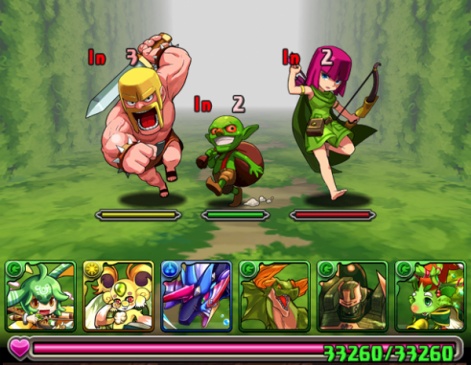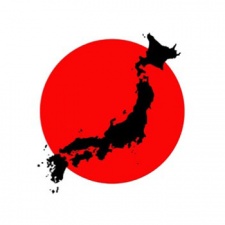David McCarthy has been employed by Metaps, GREE, Rockstar Games and Edge magazine.
He currently works for Japanese developer Cybird Inc, and writes regularly about the differences and similarities between the Japanese and western mobile game markets.
Kate Upton, Kim Kardashian, Liam Neeson, Gizmo the Mogwai, Hentai Kamen, Masaharu Fukuyama...
The phenomenon of celebrity endorsements to promote smartphone games is hardly unknown in the west.
But it has a much longer history in Japan, where the talent tends to be tied much more intimately to the actual fabric of the games themselves, and where tie-ups extend to comics, cartoons, and even other games.
It is certainly something that any developer who hopes to succeed over here should be looking into.
And, as ever, it is a strategy that we are looking into here at Cybird to see if we can use it when we launch our app in the UK early next year.
Big brands combine
The most notable and fruitful cross-promotional partnership so far between east and west is undoubtedly the GungHo-Supercell collaboration - y'know, the one that ushered in a full-blown corporate acquisition that created one of the behemoths of mobile gaming.
As surely everybody knows by now, when GungHo included characters from Clash of Clans in Puzzle & Dragons, it allowed Supercell to establish a foothold in Japan.

It also paved the way for all sorts of similar promotions in Puzzle & Dragons - from Batman to the popular manga Shingeki no Kyoujin/Attack on Titan, currently being promoted very aggressively on TV now.
Soccer hook-ups
Here at Cybird we run similar campaigns all the time in our soccer game, BFB Football. In fact, we run so many we often have more than one running concurrently.
For example, we recently ran a cross promotion event with the developer of a game based on the Gremlins license, allowing our users to get hold of Gizmo and Stripe for their squads in our game.
At the same time, though, we were running an event with Manchester City that has seen our icon and splash screens taken over by their club branding (which follows a similar tie-ups with other clubs, such as the mighty Urawa Reds here in Japan).
Shortly after the Gremlins campaign ended, another one started, based on the soccer-themed manga, Oretachi no Field, again at the same time as the Man City tie-up.
But those are just some of the many, many partnerships that have featured in the game, running the gamut from soccer stars, glamour models, members of the development team and even... fruit.
Building reach
Aside from making our players happy by making the game more fun and interesting, the advantages for us as a developer are pretty far-reaching.
In the very first instance, we built the brand of our current soccer game off the back of an early tie-up with Japanese soccer legend Shunsuke Nakamura.
Not only did he star in the game and in a TV commercial, he also did us the favour of giving the press a great quote about playing on until he is 40, giving us plenty of column inches.
We got a (slightly smaller!) PR boost earlier this year with an April Fool's collaboration with eccentric Japanese super hero Hentai Kamen, who wears a pair of panties on his head.
UA boost
Beyond brand awareness, these collaborations usually have a pretty direct impact on user acquisition itself.
If, like GungHo, you have the resources to run a TV commercial at the same time you can maximise that impact for sure; but even without televisual assistance, the right IP or celebrity can bring your game to the attention of people who might want to play your game.
These collaborations usually have a pretty direct impact on user acquisition.
If you can leverage your celebrity partner's social media presence, and/or optimize your app store presence with a branded icon and imagery, then all the better.
Used correctly, commercial tie-ups can also help you boost retention.
When we run these campaigns in our game we usually include special time-limited single-player content (in our game, a series of soccer matches with conditions attached and themed rewards). We also include themed daily login bonuses, and we give out special rewards for winners of our multiplayer tournaments.
All of which keeps players coming back for more. And of course, as is so often the case, better retention and engagement often results in better monetization - which is also helped by limited-time in-game items that appeal to fans.
What's next?
So if you are thinking of launching in Japan, it is worth thinking about how some sort of tie-up might help you reach the right fanbase, and keep them entertained.
And if you need any advice or introductions to help you with that, please don't hesitate to get in touch!
Although I might try to pick your brain in return; one of the challenges we face for our UK launch is what sort of tie-ups will be popular with British fans.
For our initial campaign we think we have a winner - though it might divide opinion in the UK - and we are already thinking ahead to other partnerships too.

















